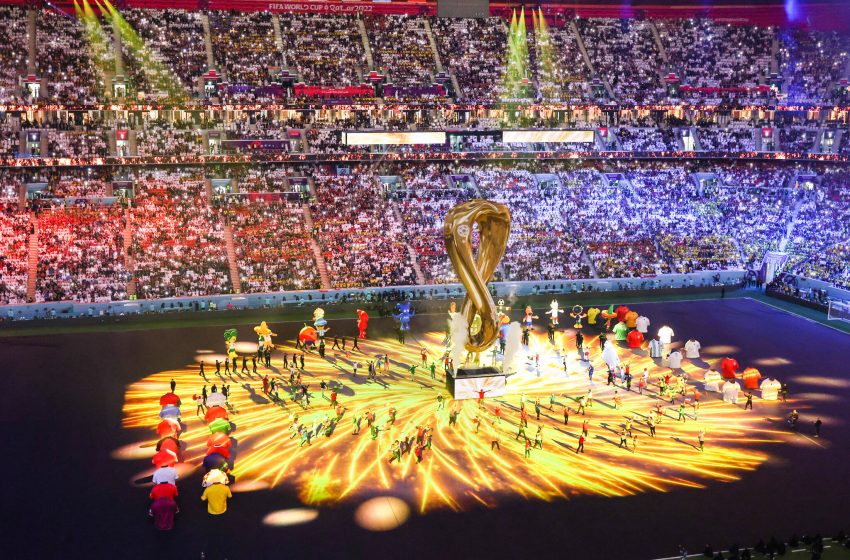
The official Danish radio DR delegate expressed his admiration for the State of Qatar and the development of its infrastructure and facilities, contrary to what was reported about it in the European media before it hosted the 2022 World Cup.
The coverage of Journalist Tue S. Hansen, delegated by the official Danish channel DR, attracted attention after he expressed his surprise at the modernity of the State of Qatar and the significant development in its facilities.
The Danish journalist said that he had imagined that he would reach a country where women are forced to wear the veil, a strict religious authority is imposed, and freedoms are restricted, according to what has been promoted about Qatar.
But Hansen said he found Qatar opposite to everything promoted against it; the country is very modern, the architecture is advanced, and life is convenient.
However, the radio anchor seemed surprised by the journalist’s view of Qatar and tried to dismiss the excellent impression the journalist was drawing of Qatar.
The 2022 World Cup matches kicked off in Qatar last Sunday with a special opening ceremony widely praised worldwide.
The European Microscope on Middle East Issues revealed a resounding scandal in the Danish media and its lack of professionalism, objectivity and the necessary scrutiny in dealing with the media coverage of the 2022 World Cup in Qatar.
The European Microscope said a Danish person deliberately impersonated an Indian residing in Qatar to examine the Danish media’s credibility and what he says about the World Cup.
The European Microscope stated that the Danish person, Stephen Christensen, corresponded with the BT newspaper and the Mediano news website, which are considered among the essential Danish news sites.
In his correspondence, Christensen Stephen presented himself as an Indian living in Qatar and wanted to publish inflammatory reports about the rights of migrant workers in the country and about the use of fake fans in the World Cup which was met with immediate approval from two newspapers without checking his identity and the information he provides.
He claimed that the Qatari government supported him financially so that the Danish Fan Club would operate and recruit people who would act as World Cup fans.
In his correspondence with the signatories, Christensen introduced himself as an Indian who had been responsible for organizing a Danish supporters’ club in Qatar.
Christensen said he set up a personal Instagram account with which journalists from BT and Mediano corresponded and based on articles about the Indian fan coordinator.
Christensen documented several correspondences with journalists on the two websites. Note that Christensen is not a journalist but is very interested in journalism. He mainly believes that the Danish media was biased in its coverage of the World Cup in Qatar, and he sees in the article’s evidence that the press operates with a kind of opacity.
Christensen said although he is not a professional journalist, he could grasp that the western media coverage of the world cup emulates this pattern of journalism.
“The fact that they keep writing about a story that has not been verified in any way, and that they do nothing to verify the information, is the most objectionable thing from society,” he adds.
“The journalists should have obtained some kind of document or insisted on meeting with this source,” he says. I know it’s probably going to be really difficult because it’s about Qatar and migrant workers.”
BT and Mediano’s editorial management acknowledged its editors’ error in rushing to deal with Christensen’s information. Still, it claimed that this was not done in bad faith and that the matter would be fully reviewed.
It is noteworthy that the Danish media has engaged in a comprehensive incitement campaign that has included most European countries in recent months against the State of Qatar, against the backdrop of hosting the 2022 World Cup for the first time in the Middle East.


